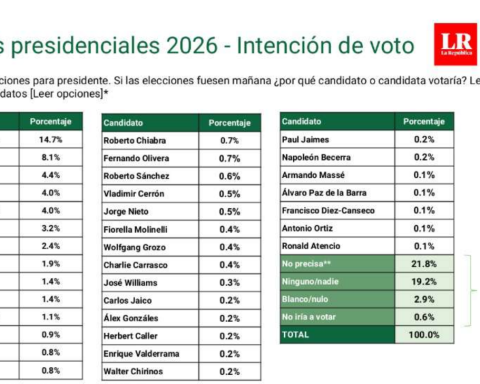In Chile, according to data published by the National Association of Cecinas Industrialists, ANIC, the annual production of sausages in 2021 exceeded 96 million kilos, which includes Viennese and fat sausages. Along with this, in 2018, an article stated that the per capita consumption of Viennese in Chile is 16 Kilos, or 16 packages of 20 units per person.
Given this high consumption by Chileans, which shows that sausages represent an important product in the daily diet, the Organization of Consumers and Users, ODECU, decided to carry out a study that evaluated the nutritional quality of sausages available in the national market. , and in turn, verify compliance with the regulations in force in Chile.
The ODECU tested a total of 11 samples, where the degree of compliance with the mandatory labeling requirements was evaluated, nutritional analysis to compare the labeled values with those obtained by proximal analysis, microbiological analysis in accordance with the criteria established in the Regulation Food Sanitary for cooked jerky, and a comparison of compliance with purchase price. In addition, a genetic analysis was carried out to identify through DNA the type of meat species used in the preparation of the sausages. It is the first time in Chile that a consumer organization has carried out this type of analysis.
From the results obtained, the ODECU mentions as a key that only one sample complies with all the aspects evaluatedwhile the remaining 10 samples present one or more non-compliance with respect to the mandatory requirements to report on their labeling.
In this regard, the President of ODECU, Stefan Larenas Riobó, explains that “an innovation in this study was the application of genetic analysis that identifies DNA through the PCR technique, which made it possible to identify the meat species contained in the samples, obtaining as a result that only 45% (5 samples) comply with the labeling on its list of ingredients. The remaining 6 samples, equivalent to 55%, present one or more non-compliances in their composition and/or labeling. The detected deficiencies correspond to: content of an unlabelled ingredient; labeling of an ingredient that they do not contain and/or non-compliance with the obligation to label their ingredients in descending order in proportion”.
Genetic Analysis
Through genetic analysis, various breaches of the regulations were detected due to the composition of the products.
In detail, according to the DNA analysis, the Traditional PF sausages, although they labeled to be made with chicken and pork meat, yielded 36% turkey meat, which is not labeled. Meanwhile, the Montina Tradicional brand, which claims to be made with chicken and pork meat, turned out to have no pork and contain 15% turkey meat, which is also not labeled.
Another case is the Lider Sureña Sausage, which declares to be made with chicken and pork meat, but found 5% of beef not declared on the label. Irregularities were also found in the Receta del Abuelo brand, Sausage Sureña, which although it declares to be made mainly of beef and later pork, the DNA analysis showed that it is 85% pork, 11% beef and 4% turkey, the latter not declared . Finally, the Grandfather’s Recipe Premium Sausages, which declare to be made mainly with pork, and later beef, turned out to be 86% pork, 12% undeclared turkey and only 2% beef.
In other results, the Receta del Abuelo brand, in its Southern Sausage version, does not comply with the amount of total fat labeled (it states that it has 15.9 g/100g and 27 g/100g were found). Meanwhile, for the amount of sodium, 6 brands do not comply with the labeling: PF Traditional Sausage, La Preferida – Southern Sausage, Líder – Southern Sausage, Grandfather’s Recipe – Southern Sausage, PF – Southern Sausage and Grandfather’s Recipe – Premium Sausage , all registering a greater amount of sodium.
Regarding proteins, despite including them in their manufacture and complying with the labeling, ODECU states that sausages cannot be considered a good source of protein, given their high amount of fat, compared to egg protein, for example.
Finally, the President of ODECU, Stefan Larenas Riobó, affirms that it is extremely important to call on consumers to find out about the type of food they consume, the nutritional quality they contain and the impact it causes on people’s health, ” The execution of this study is a contribution of information to the consumer and a call to create awareness of what is being consumed, and that, if you choose this type of product, you can do so informed”.
Odecu Sausage Study Report by The counter on Scribd
Summary study ODECU sausages by The counter on Scribd


















